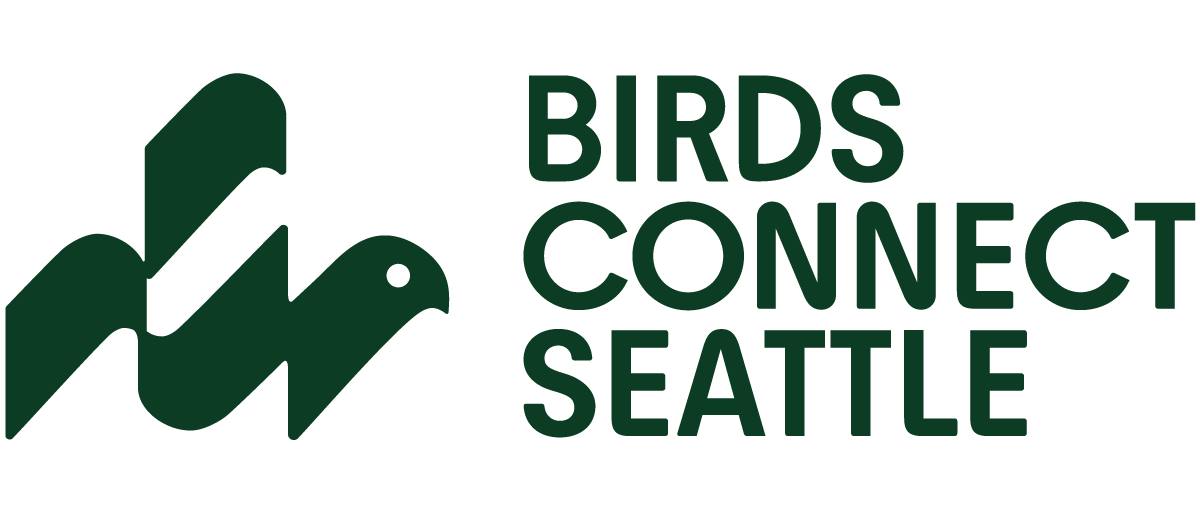Mandarin Duck © Sharon Wada
By Sharon Wada
Fill
“Manny,” as local birders began to call the celebrity, is an adult male Mandarin Duck. This stunning guy is the only one that I know of in the Seattle area and when he first was spotted, so many of us wondered, how did he get here?

Manny splashing down from a log at Juanita Beach Park in 2021
I’m not exactly sure why I found Manny’s situation so interesting. Beyond his natural beauty, there was something very endearing about a creature with Asian roots living its life in a world full of ducks not of his own kind. And there also was the survival factor. If previously captive, he may have been fed but now needed to learn how to forage and fend for himself. A fellow photographer mentioned that he seemed to catch on to the available aquatic edibles by following around his “cousin” Wood Ducks as they dunked their heads down near the shoreline, harvesting lily pad stems and other tubers.
Manny munching on a lily pad tuber in Juanita Bay Park
“Ducks are very adaptable,” Klass added. “Manny has a good chance of leading a relatively normal life. It sounds like he has taken up with the locals which means that he can find all of the local watering holes. They are not very picky eaters, so will gladly consume a wide variety of native invertebrates and plant life.”
Lady Liuwa
Lady Liuwa in 2014
Over time and with much persistence, African Parks successfully introduced another lioness that eventually had cubs and enabled Lady to live the rest of her years with an adopted family before she passed away in 2017. I learned about her in a heartwarming 2009 National Geographic documentary called “The Last Lioness”. Her predicament really touched me, so much so that in 2014, I traveled for three days to see and photograph her in Liuwa Plain National Park. Observing Lady as an “auntie” in her newfound pride remains one of my most memorable life experiences.
Lady Liuwa with her adopted family: Sepo and her three cubs.
My Parents’ Story
Both were born in the U.S. during the Great Depression to Japanese-born parents (or Isseis). As Nisei, the second generation of Japanese immigrants in America, my parent’s childhoods were spent living on the West Coast where they experienced racism first hand, especially after Japan’s attack on Pearl Harbor. As adolescents, they were forced to move with their families to temporary livestock quarters, waiting for barracks to be built in some of the most remote deserts hundreds of miles to the east.
Eventually, my Dad’s family was moved to a camp in Heart Mountain, Wyoming while my Mom’s family was shuttled to Poston, Arizona. 120,000 people of Japanese descent who lived in Washington, Oregon, and California were interned in 10 so-called “relocation centers” surrounded by barbed wire. The majority of them were U.S. citizens.
I can’t imagine a childhood living for three years in dusty, cold, overcrowded shelters with no privacy, no normalcy, and no freedom.
One Generation Later
My senior year of high school and first year of college at Seattle Central were incredibly eye-opening. The campus had this vibrant energy and it was invigorating to walk down the bustling hallways filled with people of color and hear the cadences of Hindi, Arabic, Chinese, Spanish, and other languages I did not recognize. I knew no one and was one of the youngest students in my classes, but for the first time in my life, I felt like I was part of the real world.
I belonged.
Manny hanging out with a female Wood Duck in Lake Washington.
Given Manny has been observed mating with this lady Wood Duck, one of the questions swirling is, “I wonder if they can have offspring?” So, I asked Klass what she thought.

Manny doting on his “friend” in Juanita Bay.
She continued, “It is suspected that this difference in chromosomal shape prevents successful hybridization. There are a few records of hybrid cases with Mandarins, but nothing terribly concrete.” (This blog post has more information.)
If Manny is unable to breed successfully with Wood Ducks, it’s still so nice to see him puttering around in Lake Washington with a variety of other water birds. Let’s hope that he lives a natural and peaceful life, basking in admiration from us “Manny fans” and hopefully from a certain female Wood Duck.
We are all odd ducks sharing a big pond. Let’s fill it with empathy.


Sharon Wada
Seattle Audubon Board Member









